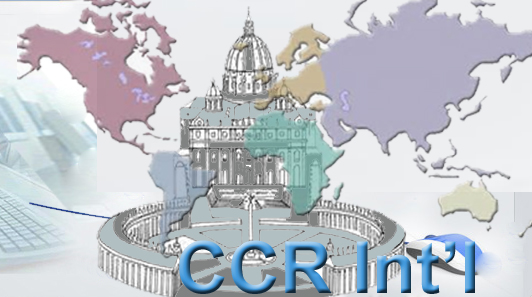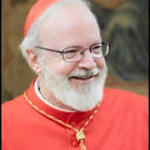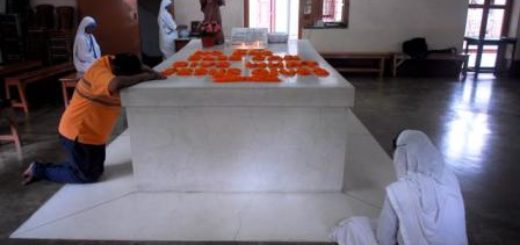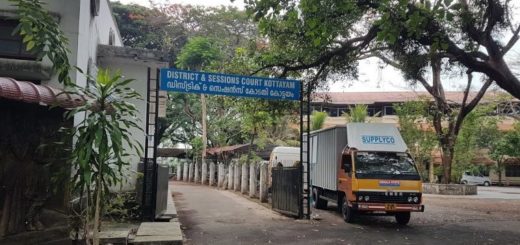Work with Laity _CCRInt’l writes to Cardinal O’Malley:

Dear Cardinal O’Malley:
 In Evangelii Gaudium Pope Francis called for a “communal search” in local communities to rethink the goals, structure, style, and methods of evangelization (n. 33), urging bishops to use diocesan synods and diocesan pastoral councils in order to foster a dynamic, open, and missionary communion (n.31).
In Evangelii Gaudium Pope Francis called for a “communal search” in local communities to rethink the goals, structure, style, and methods of evangelization (n. 33), urging bishops to use diocesan synods and diocesan pastoral councils in order to foster a dynamic, open, and missionary communion (n.31).
Catholic Church Reform International (CCRI), a network of Catholic groups and individuals in 65 countries across the world committed to the renewal of our Church, is taking the same approach.
CCRI was most encouraged when, prior to the recent Extraordinary General Assembly of the Synod of Bishops, a questionnaire on pastoral challenges to the family was widely circulated: not just to the usual narrow audience, but to the whole Church. We were also pleased that married couples were invited to address the Synod and participate in its discussions. Sadly, however, (1) many bishops throughout the world did not circulate the questionnaire at all, or only peremptorily; (2) the invited couples were too few, and not sufficiently representative of the diversity of families or of nations; and even more sadly (3) Episcopal Conferences were told not to publish and disseminate the summaries of the Faithful’s responses.
According to the RelatioSynodi (n.62), the reflections voted on at the Extraordinary Assembly and intended to raise questions and indicate points of view, are to be “developed and clarified through reflection in the local Churches” in the period prior to October 2015. CCRI applauds this decision of the Synod, but we wonder how the bishops will go about collecting these local reflections.
CCRI understands that the Synod Secretariat will soon be sending all Episcopal Conferences the preparatory document (Lineamenta) for the Ordinary General Assembly, so that the Instrumentum Laboris can be ready by summer 2015, and that the Lineamentawill contain “a series of points that help in its reception and its deepening.” We look forward to the details.
Clearly, the widespread grassroots reflection by the Faithful must continue during this 11-month period leading to the Ordinary Assembly.
However, as you must know, the US bishops as a whole areknown for being listeners to the lay Faithful. Since Vatican II, few of them have convened diocesan synods, which the Council wanted to “flourish with vigor.” According to research conducted in 1998 by CARA, only 54 percent of US dioceses and eparchies had organized a diocesan pastoral council or similar body1, a record providing scant confidence that the US bishops will now effectively organize the local grass-roots reflections that the Synod is calling for.
While Pope Francis states that “the important thing is not to walk alone, but to rely on each other as brothers and sisters, and especially under the leadership of the bishops, in a wise and realistic pastoral discernment” (EG, n. 33), some will prefer the way they have always done it, walking alone, or just listening to those who will tell them what they want to hear. But it is no longer acceptable to “propose goals without an adequate communal search for the means of achieving them,” for any other way “will prove illusory” (EG, n. 33).CCRI does not want the US bishops to walk alone, but to walk with their people, accompanying them on the common journey by listening, learning, and sharing and to do sohumbly, openly, and respectfully in the manner demonstrated by Pope Francis at the Synod.
During the past year, in an effort to support Pope Francis and the Synod’s work, CCRI organized several surveys and gatherings in various locations around the world, all focused on eliciting the reflections of ordinary Catholics on their lived experience of family life and its challenges in the light of the Gospel. We summarized those reflections and delivered them in a report to the Synod Secretariat before the Extraordinary Assembly and shared them with you and other attendees of the Synod (attached again for your convenience).
As you and your fellow US bishops prepare for the next round of reflections, CCRI would like to share its own experiences with you in a communal search and reflection for better pastoral solutions to the challenges facing US Catholic families. We have already developed some tested instruments and tools to do this and stand ready to share them with the bishops. As soon as the Lineamenta is available, we have a dedicated group ready to update our own online survey, though we want to include some issues which received little or no attention from the Synod, such as the role of women in the family of the Church and the devastating effect the sex abuse scandal has had on families.
Though the Synod of Bishops, as a consultative body, can only provide the Pope with advice, ultimately that advice has to come from “the body of the faithful as a whole, [who] anointed by the Holy One, cannot err in matters of belief; [for] thanks to a supernatural sense of the faith which characterizes the People as a whole, it manifests this unerring quality when, from the bishops down to the last member of the laity, it shows universal agreement in matters of faith and morals” (Lumen Gentium, n. 12).
The task ahead, therefore, is for all bishops to work co-responsibly and in communion with the laity. This, of course, as Pope Benedict XVI said, “will require a change of mindset on the part of the bishops and clergy, particularly concerning lay people. They must no longer be viewed as collaborators of the clergy, but truly recognized as co-responsible for the church’s being and action” (Rome Synod, 2009). CCRI wants to see the US bishops to begin treating the Faithful as co-responsible partners and citizens of the Church, with recognized rights and responsibilities derived from their shared Baptism.
We suspect that, in preparing for the Ordinary General Assembly in October 2015, the NCCB has its own ways of tapping into Catholic public opinion, but we would like to suggest it could also find some advantage by widening its circle of understanding – specifically by augmenting its intelligence reports with ours at CCRI.
To be more specific, we hope we can reflect the feelings of a sizeable, but hidden, group of American Catholics. The Pew researchers identify them as ex-Catholics who are at or beyond the margins of the Church. We believe the US bishops may tend to ignore them, or, if not, will have a difficult time reaching them. Many of these ex-Catholics still have the faith, but they do not trust their bishops. They believe the bishops no longer care for them, are blind to their own abuse of power and authority, and have covered up the criminal behavior of too many priests. Over the years, these perceptions have caused many to just drift away, but we think many of them may be “open to returning to active participation if they can see that their issues are being addressed.”2But they will only come back if they are given a reason to believe their pastors are interested in their reflections on what the Gospel means to them and their families. Action is possible, but there has to be an invitation to speak, and an openness to listen. CCRI believes that it can help reach them, and wants to try. Otherwise, those who have drifted away will continue to follow the path that leads irrevocably away from the Church.
There is no time to waste in preparing for the Ordinary General Assembly. CCRI wants to use the time productively to ensure that as many Catholic families as possible across our nation, in all their diversity, are invited to reflect and to add their sensus fidei to the reflections to be considered by the Synod. We would like to work together with the bishops in this task and offer our support for a truly communal search and reflection.
Please phone me so we can talk about taking our first steps together.
Yours in Christ,
Ms Rene Reid, Director
On behalf of the CCRI Strategic Team
Robert Blair Kaiser (USA),
John Buggy (Australia),
Janet Hauter (USA),
Brendan Butler (Ireland),
Virginia Saldanha (India),
Sr. Mary John Mananzan (Philippines)
Peter Wilkinson (Australia)
Rene Reid (USA)
And on behalf of all the Church organizations who have joined with us in our support of Pope Francis as he strives to bring about needed reform in our Church
http://catholicchurchreformintl.org/documents/WorldwideOrganizationssupportingCCRI_003.pdf
CC: Archbishop Joseph Kurtz, president of the US Conference of Bishops
References
- NCCB Committees on the Laity and on Pastoral Practices, Diocesan and Eparchial Pastoral Councils: A National Profile. June 1998. CARA, Washington, DC.
- Australian Catholic Bishops Conference, Catholics Who have Stopped Attending Mass, Final Report, February 2007. ACBC Pastoral Projects Office, ANU, Fitzroy.
|
95 Rancho manor dr. • reno, nv • 89509 Phone: 775-825-9196 • Fax: 775-825-9197 • cell: 775-772-1210 www.catholicChurchreformintl.org• renereid@catholicchurchreformintl.org |
















